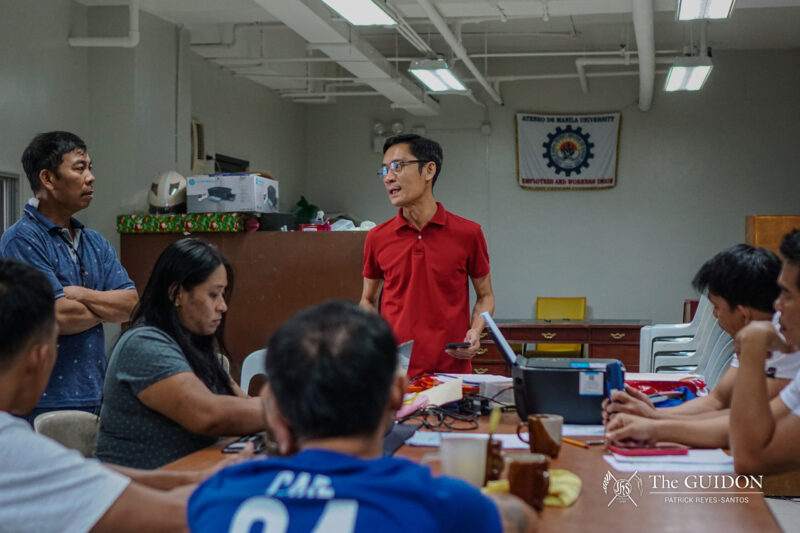SEVERAL MEMBERS of “Manilakbayan” met with Sanggunian officials last December 7, asking to raise awareness of the mining issues in Mindanao.
Delegates included two native Lumads, a Benedictine sister who lived with the Lumads and a representative from the Promotion of Church People’s Response. They were accompanied by Jesuit brothers from the Samahang Lingkod ng Bayan.
More officially known as “Manilakbayan ng Mindanao: A Journey in Defense of Land, the Environment and Human Rights,” the mobilization was conceived by Panalipdan! Mindanao, a network of advocates and defenders of the environment of the said area.
To date, there have been at least 32 extrajudicial killings of leaders of environment advocates, farmers and indigenous peoples (IPs). 24 of them were Lumad leaders who have been defending ancestral domain since June 2010.
“As stated by the Lumad leaders, their fight is really difficult because events in Mindanao rarely reach the national consciousness. They really just want to be heard,” said School of Science and Engineering 4th year Central Board Representative Nicole Dela Cruz.
She added that the IPs are not completely against mining, but want a framework that all stakeholders can agree on.
They are lobbying for House Bill 4315, also known as the People’s Mining bill, in replacement of the Mining Act of 1995 that allegedly favors large mining companies.
The mobilization is bringing over 60 members from affected communities and supporting groups such as Kusog sa Katawhang Lumad sa Mindanao, Union of Peoples’ Lawyers in Mindanao, National Council of Churches in the Philippines and Gabriela, among others.
Raising awareness
Dela Cruz said that the main purpose of the delegates was to shed light on their plight.
“The group actually came to the Ateneo to simply share their experiences in Mindanao. They wanted people in the National Capital Region to be aware of the violence that comes with mining and militarization in Mindanao since these events rarely reach the national consciousness,” she said.
Delegates particularly noted the increasing number of killings because of the opposition of groups in Mindanao to the mining activities held there.
They also asked the Sanggunian to sign a petition calling on the cessation of large-scale mining in Mindanao because they said that militarization and deaths go together with large-scale mining.
Taking action
Dela Cruz admitted that Ateneans might not be directly affected by the issues in Mindanao, but stressed that the Ateneo education teaches them to take action against injustices happening to the marginalized.
She even tied the issue with the environment and sustainable development. “The massive destruction and loss of lives brought about by the onslaught of typhoons like Sendong and Pablo can be directly linked to these mining and logging activities that are happening in Mindanao.”
“As educated citizens of a country that is very rich in natural resources, Ateneans should be part of ensuring that these natural resources are protected,” Dela Cruz adds.
She added that Ateneans should be “vocal” and lobby for a new framework that takes into consideration the welfare of communities affected by the mining in Mindanao.
“Our country cannot afford to have a next generation that is apathetic to plight of the needy, so Ateneans should start educating themselves about these issues now.”
Course representatives have already been tasked to inform their constituents about the said problem in Mindanao and ask them to sign the petition promoted by “Manilakbayan.”
In the coming weeks, the Sanggunian will seek audience from the administration.
Earlier this academic year, the Sanggunian released a stand against such mining activities. The university also released its own stand.






